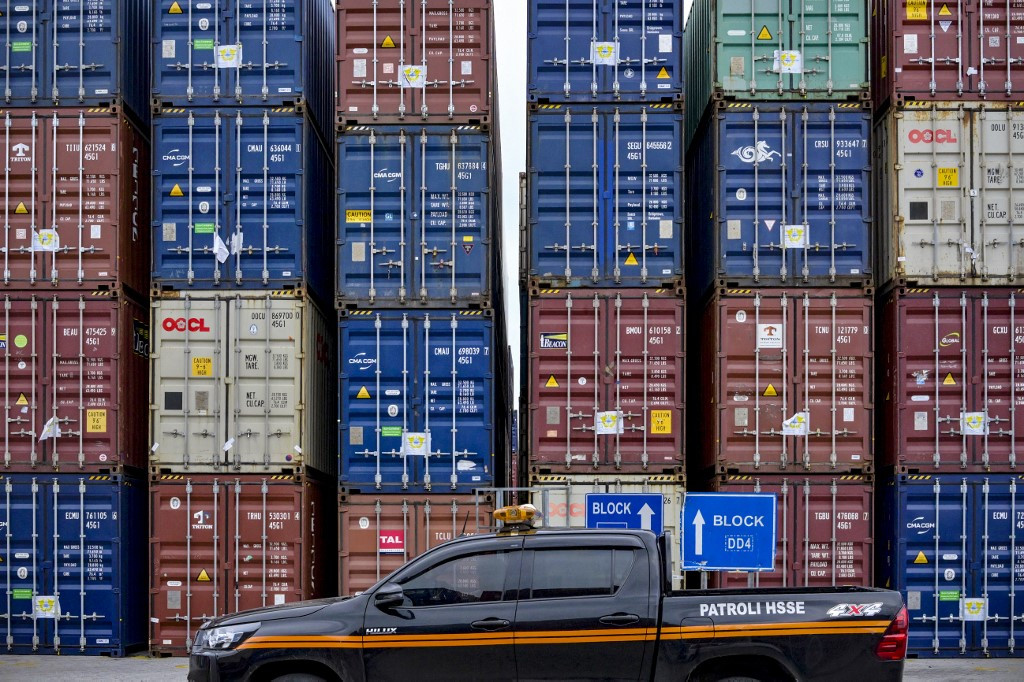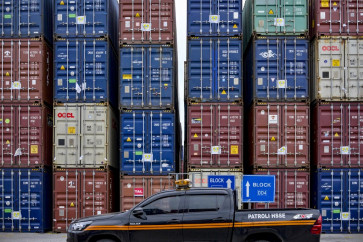Popular Reads
Top Results
Can't find what you're looking for?
View all search resultsPopular Reads
Top Results
Can't find what you're looking for?
View all search resultsIndonesia-US trade agreement brings risks and rewards
Approximately 40 Indonesian export products face direct competition with US exports, particularly in labor-intensive sectors.
Change text size
Gift Premium Articles
to Anyone
T
he recent negotiations between the Indonesian government and the United States to lower import tariffs have led to significant changes in trade relations between the two nations, in the aftermath of the US launching their 'Liberation Day' tariff barrage. The joint statement between Indonesia and the US outlines an agreement to lower import tariffs on Indonesian goods to the US market to 19 percent from 32 percent, making Indonesia one of the countries in ASEAN with lower import tariffs.
Additionally, the US has proposed a zero percent tariff on Indonesian imports from the US, benefiting certain key industries such as oil and gas, agriculture and aircraft manufacturing. However, Indonesia's high dependence on the US market, especially for key export products like textiles, furniture, processed fisheries and footwear, raises concerns about the potential negative impacts of the tariff changes.
The reduction of import tariffs may pose risks to Indonesian industries that heavily rely on the US market. Approximately 40 Indonesian export products face direct competition with US exports, particularly in labor-intensive sectors such as metal goods, transportation equipment, furniture, machinery and textiles.
The imposition of a zero percent tariff on US imports could lead to challenges for these industries in competing with lower-cost US products, potentially impacting their market share and profitability. Furthermore, the "reciprocal" tariff of 19 percent imposed by the US on Indonesian exports could have significant repercussions. This tariff may result in a decrease in profits for Indonesian corporations exporting to the US, as the additional costs incurred can hamper the competitiveness of Indonesian exporters.
This could adversely affect their bottom line and credit risk profile, creating financial difficulties for these companies. The overall impact on Indonesian exports, as forecasted using export data, is estimated to be around 10.57 percent across 98 commodity categories such as textiles, furniture, processed fisheries and footwear. This substantial potential loss in revenue for the country highlights the detrimental effects that tariffs can have on the economy, hindering growth and prosperity.
Despite the risks associated with the tariff changes, there are also opportunities for Indonesia to leverage the new trade agreement with the US. The reduction in import tariffs could lead to increased demand for US products in Indonesia, particularly in the agricultural and industrial sectors. This could help stimulate economic growth and diversification in Indonesia, as well as enhance the country's access to high-quality US products that are not readily available domestically. Moreover, the lower import tariffs may benefit Indonesian corporations importing US goods by reducing operational costs and improving their bottom line.
The increased affordability of US capital and intermediate goods could potentially drive up corporate profits and boost financing demand. This could also facilitate increased investment by US corporations in Indonesia, further strengthening bilateral trade relations between the two countries.



















